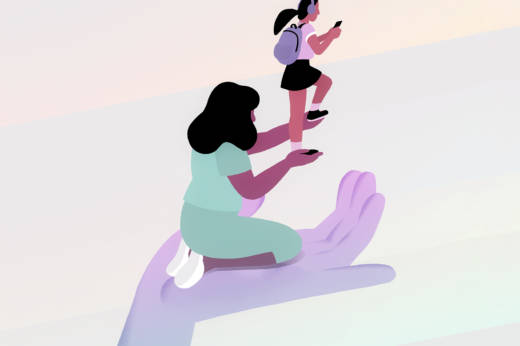Rates of anxiety and depression among teens in the U.S. have been rising for years. According to one study, nearly one in three adolescents (ages 13-18) now meets the criteria for an anxiety disorder, and in the latest results from the Centers for Disease Control and Prevention's Youth Risk Behavior Survey, 32 percent of teens reported persistent feelings of sadness or hopelessness.
And there's more bad news, grown-ups: The authors of two new parenting books believe you're part of the problem.
"Kids are play-deprived nowadays," says Katherine Reynolds Lewis, a journalist, parent, parent-educator and the author of one of those two new books, The Good News About Bad Behavior. And by "play" she means play without screens or adults keeping watch.
"Two or three decades ago, children were roaming neighborhoods in mixed-age groups, playing pretty unsupervised," Lewis says. And this kind of parent-free play helped them develop important skills they'd use for the rest of their lives. "They were able to resolve disputes. They planned their time. They managed their games. They had a lot of autonomy, which also feeds self-esteem and mental health."
These days, though, free play is on the decline, Lewis says, and so are the social and emotional skills that come with it. Part of the problem, according to Lewis, is parents who worry that unsupervised play is just too risky. But the risk is part of the point — for kids "to have falls and scrapes and tumbles and discover that they're okay. They can survive being hurt."



9(MDAxOTAwOTE4MDEyMTkxMDAzNjczZDljZA004))